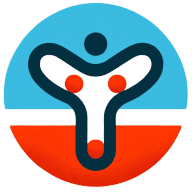How Can Patient Self-Monitoring Help Manage An Endocrine-Related Disease?
Self-monitoring empowers individuals with endocrine-related diseases to take control of their health journey. By tracking vital health data and symptoms, patients can make informed decisions and potentially reduce hospital visits. Embracing this proactive approach can lead to earlier detection of complications and a more consistent adherence to medication routines.
- Monitor Glucose Levels for Better Management
- Track Health Data for Informed Decisions
- Reduce Hospital Readmission Rates
- Stick to Medication Routines
- Detect Complications Early
- Encourage Proactive Lifestyle Changes
Monitor Glucose Levels for Better Management
Good day,
Self care through constant surveillance plays a pivotal role in managing diabetes; the understanding gleaned from vigilant monitoring can similarly impact other endocrine disorders. Those grappling with type 1 or certain forms of type 2 diabetes rely on unceasing glucose levels via continuous monitors or bloodwork to dynamically tailor their sustenance, exercise, and insulin.
Through mindful tracking, individuals unveil tendencies and triggers such as select foods inciting unforeseen surges or stress inclined to heighten readings. This awareness capacitates wiser choices, hinders complications, and facilitates collaboration with medical teams. For example, a patient battling frequent hypoglycemia started using a CGM, alerting them to drops in blood sugar preceding dangerous declines. Armed with this apparatus, they tailored insulin dosing and meal timing, substantially upgrading their quality of life while reducing emergencies.
Self monitoring isn't solely figures. It's comprehending the body’s responses and preemptively ensuring well being. When patients actively participate in their care, outcomes often improve while a sense of control over their condition increases.

Track Health Data for Informed Decisions
Patient self-monitoring promotes informed treatment decisions by allowing individuals to track their health data accurately. This data includes things like blood sugar levels, hormone fluctuations, or any other relevant markers specific to their condition. Regularly updated and accurate data helps doctors make the best treatment choices based on real-time information.
This approach minimizes guesswork and enhances personalized care. Start tracking your health metrics today to improve your treatment outcomes.
Reduce Hospital Readmission Rates
When patients track their health metrics at home, it can significantly reduce hospital readmission rates. Keeping a close eye on symptoms and changes can alert patients and doctors to potential issues before they escalate into emergencies. This ongoing vigilance means that interventions can be made promptly, avoiding costly and stressful hospital stays.
It's a proactive way to maintain better health and avoid unnecessary complications. Begin monitoring your health now to prevent hospital visits.
Stick to Medication Routines
Regular self-monitoring helps patients stick to their prescribed medication routines more effectively. By keeping track of their medication intake and its effects on their health, they are more likely to follow through with their treatment plan. This consistency is crucial in managing endocrine disorders where medication schedules greatly impact the effectiveness of the treatment.
Enhanced medication adherence leads to better disease management and overall health. Commit to tracking your medication today for better health management.
Detect Complications Early
Self-monitoring enables early detection of complications, giving patients and healthcare providers a head start on managing potential issues. Regular tracking can reveal subtle changes in health before they become serious problems. This early awareness allows for quicker intervention and can prevent minor issues from developing into major health crises.
Staying ahead of complications results in more stable health outcomes. Take control by monitoring your health closely.
Encourage Proactive Lifestyle Changes
Tracking health metrics can encourage proactive lifestyle changes that benefit overall health management. When patients see the direct impact of their daily habits on their health data, they are more inclined to make positive changes such as improving their diet or increasing physical activity. These lifestyle adjustments can have a significant impact on managing endocrine-related diseases.
By making proactive choices, patients can better control their condition and improve their quality of life. Start making healthy lifestyle changes today to see real benefits.

